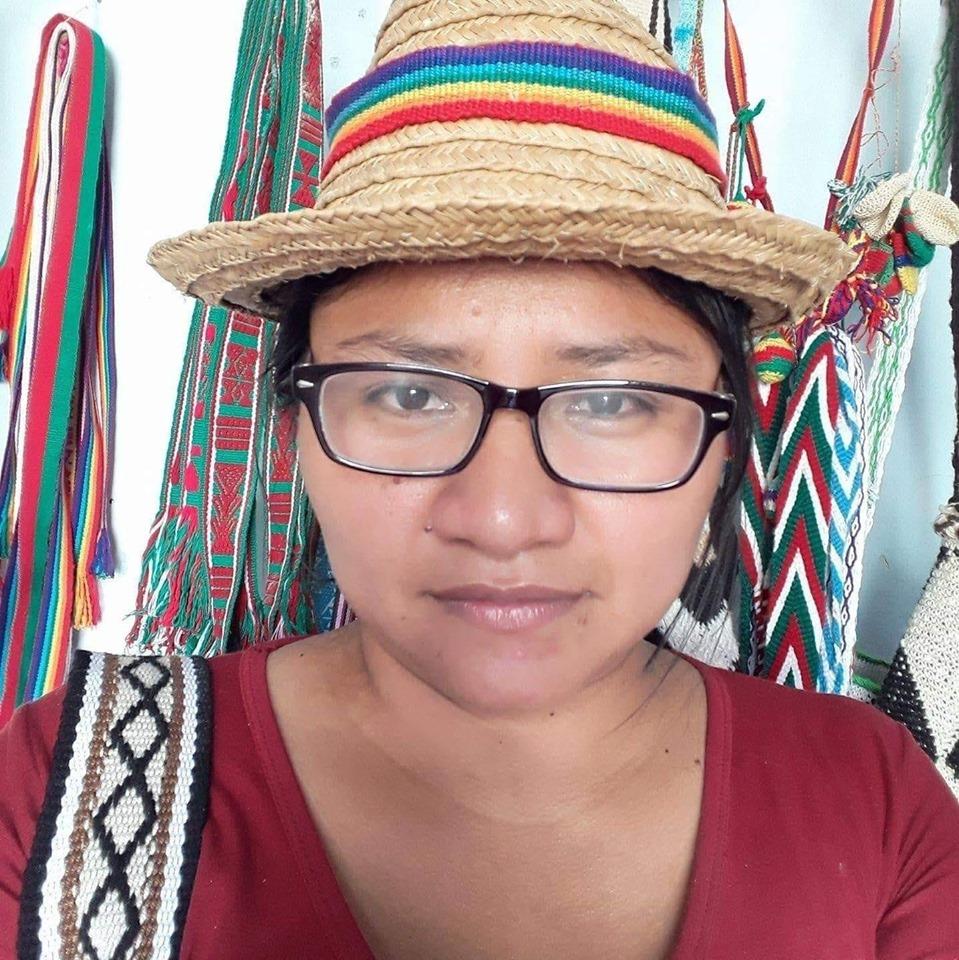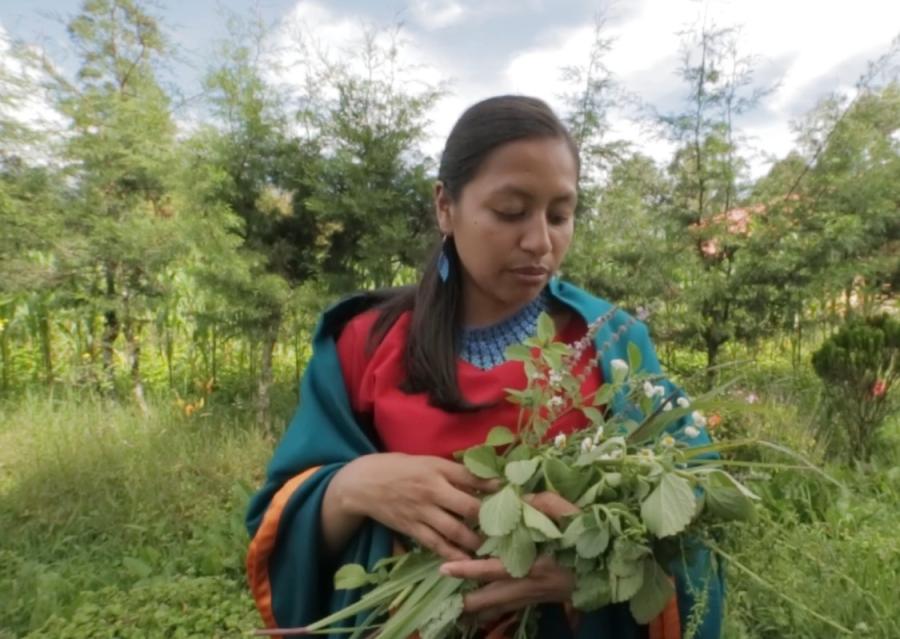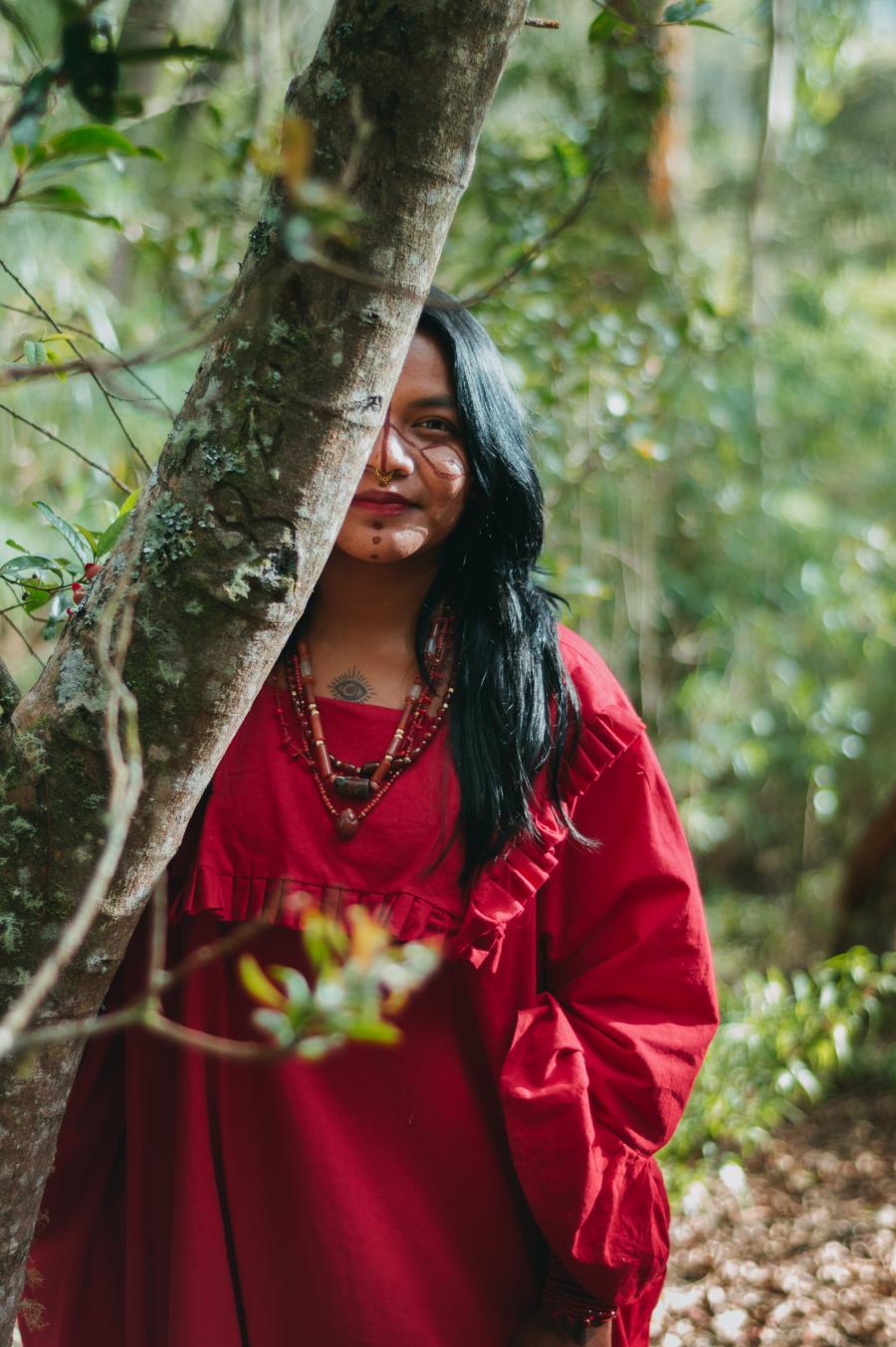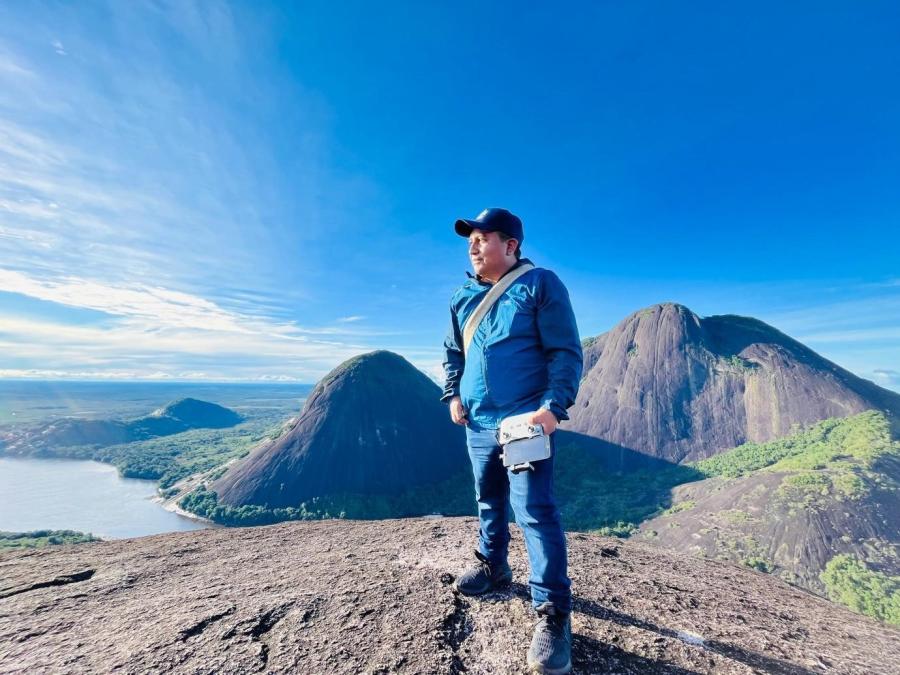
Cristina Bautista (Facebook)
Cultural Survival strongly condemns the ongoing violence against Indigenous Colombians. According to Colombia’s human rights ombudsman, 486 activists and human rights defenders have been murdered since January 2016. A majority of those killed have been Indigenous.
The National Indigenous Organization of Colombia (ONIC) reports that 121 Indigenous people have been murdered since President Duque took office in August 2018.
We are deeply saddened and angered by the recent massacre in Cauca, in which on October 29, 2019, Indigenous authority Ne’h Wesx Cristina Taquinas Bautista and four members of the Nasa Tacueyo Indigenous reserve were killed, and another five wounded. According to reports, a black vehicle with armed members of the FARC dissident group "Dagoberto Ramos" opened fire on the Bautista and her guards after plowing through a barricade the community had set up to protect their territory.
Cristina was a traditional leader, social worker, land defender and Indigenous rights activist who was a 2017 Indigenous Fellow of the Office of the High Commission for Human Rights in Geneva, Switzerland.
On August 13, she was filmed making the following speech in Toribio, Resguardo San Francisco, Cauca, in which she denounced previous murders of Indigenous guards. She exclaimed, "If we stay quiet, they kill us, and if we speak, they kill us too. So, we speak.”
In Cristina’s words: “There is nothing on earth that does not come to the light. Those who killed our guards, will need to come to the light. This case will not be left in impunity."
Her murder marks the seventh Indigenous traditional authority who has been assassinated in Cauca just in the month of October 2019. Two weeks ago, 57-year-old Toribio Canas was killed in the same town.
Indigenous organizations in Colombia, including the Regional Indigenous Council of Colombia (CRIC) have been urgently demanding response to this incessant wave of violence, which they have labelled a genocide.
“We call on the State of Colombia, demanding immediate and concentrated solutions to the genocide happening on a national level and especially in the north of the department of Cauca,” said the statement by CRIC, issued August 13.
In response to the massacre of Bautista, Colombia’s government has launched a military offensive to hunt down the gunmen responsible, and President Ivan Duque travelled to the region on Wednesday. The president had been scheduled to meet with indigenous authorities in Cauca in April, but bailed out on the authorities at the last minute, citing security concerns.
In response, CRIC announced, “We have issued complaints with the District Attorney and with the National Unit for Protection and Defense of the People, but the violence does not stop. On the contrary, it continues to rise, often under the nose of the military, for which reason we do not consider the [recent announcement] as a guarantee of protection.”
Violence against Indigenous Peoples is not new in Colombia. During the half-century long civil war between armed rebel group FARC and the Colombian military, Indigenous Peoples who refused to ally with either side were often caught in the crossfire.
The signing of the 2016 Peace Accords, which, on paper, formally ended the civil war after 260,000 lives were lost and 7 million displaced, ushered a new hope for peace. However since the cease fire, drug trade, and extractive industry related conflicts result in violence where activists and Indigenous leaders are often targets.
In 2007, when the international community voted to adopt the UN Declaration on the Rights of Indigenous Peoples, Colombia abstained from voting. Nevertheless, it is bound to oblige with its articles.
Article 7 states: “ 1. Indigenous individuals have the rights to life, physical and mental integrity, liberty and security of person. 2. Indigenous peoples have the collective right to live in freedom, peace and security as distinct peoples and shall not be subjected to any act of genocide or any other act of violence, including forcibly removing children of the group to another group.”
Article 22 states:
“ 2. States shall take measures, in conjunction with indigenous peoples, to ensure that indigenous women and children enjoy the full protection and guarantees against all forms of violence and discrimination.”
“Yesterday’s attack should serve as an alarm for the Duque administration regarding the urgent need to protect the lives and rights of indigenous and ethnic minority groups. The massacre perpetrated in Cauca is a direct consequence of the Duque administration’s failure to fully implement the 2016 Colombian peace agreement in an integral manner. In particular, it reflects his neglect of the Ethnic Chapter in the accords, which transversally safeguards the rights of indigenous and Afro-Colombian communities, and enshrines autonomous self-protection measures for communities like the indigenous guard,” urged Washington based Latin America think tank WOLA in a statement.
Cultural Survival joins in solidarity with the Nasa people and the Indigenous Nations in Colombia in calling for the prompt investigation into this wave of violence and to urgently bring the perpetrators of this attack, and others, to justice. We join calls requesting investigation by the UN Human Rights Commission and the OAS Mission to Support the Peace Process in Colombia, and reiterate the right of Indigenous Nations to safety and security in their territories.



